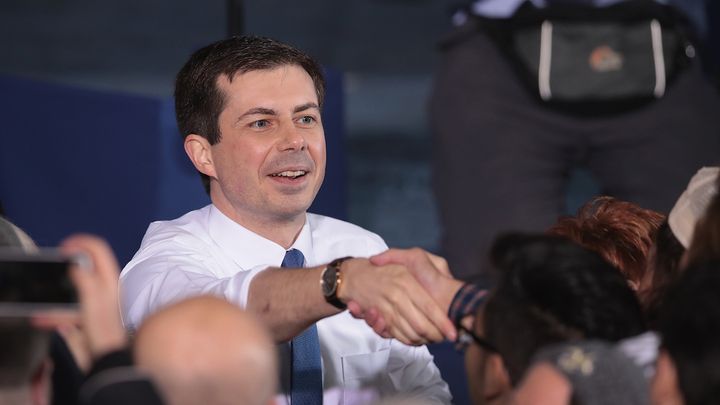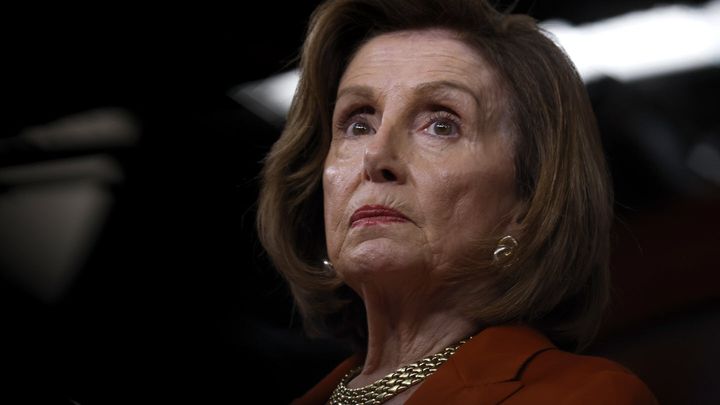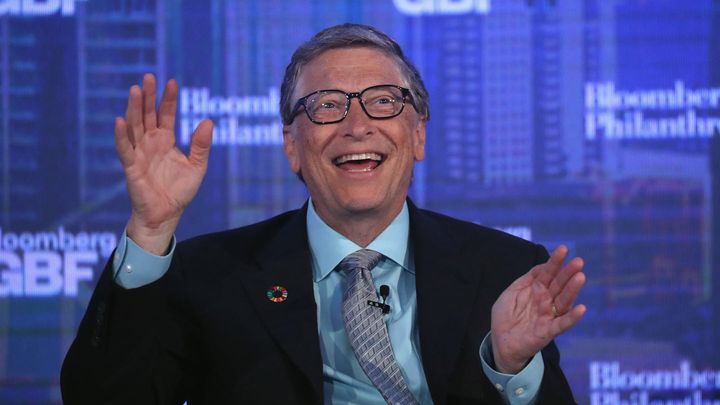The American Prospect is a nonprofit, independent magazine covering public policy and politics. Sludge is re-publishing this article.
Much has been made of former Mayor Pete Buttigieg’s pitiful polling numbers with African American voters throughout his primary run, and for good reason. One poll in South Carolina showed him with exactly zero percent of likely black voters, and he’s hardly fared any better nationwide. In nearly every fundraiser he has done since they’ve been opened to the press, attendees have made some mention of his struggles with this demographic.
But that isn’t the only minority group Buttigieg has struggled to make inroads with. He’s performing similarly poorly with Latinos. He clocked in at a measly 2 percent in a late-year Telemundo poll, while a more recent Reuters/Ipsos poll showed him with 3 percent support from Latino voters. Those numbers are particularly alarming for the Buttigieg camp, given that Latinos are predicted to be the largest ethnic electorate of the next cycle. His inability to gin up support within communities of color raises serious questions about his campaign’s viability outside of Iowa and New Hampshire.
To that end, the Buttigieg camp recently rolled out a signature plan to increase turnout and engagement within the Latino community, called “El Pueblo Unido.” In it, Buttigieg pledges to create a path to citizenship for the approximately 11 million undocumented immigrants currently living in the U.S., many of whom (but not all) are Latino. Beyond that, the plan smacks of the managerial consultancy that has made up the bulk of Buttigieg’s professional career: commitments to improve representation of Latinos in small-business ownership, federal contracts, and entrepreneurship; doubling the number of teachers of color over ten years; and offering political representation for Puerto Rico. “El Pueblo Unido” also calls for the establishment of a commission focusing on disaster relief, particularly for coastal regions such as Florida and Puerto Rico, where there are large Latino populations.
But the sincerity of Buttigieg’s pledges to Puerto Rico, in particular, has raised eyebrows. Just two days after his Latino outreach plan was unveiled, it was revealed that Team Buttigieg had omitted more than 20 high-powered fundraisers from its official list of bundlers. Among those left out was William Rahm, a senior managing director at the private equity firm Centerbridge Partners. And while it’s hardly a surprise that high-ranking private equity titans are allies of the Buttigieg campaign, Centerbridge Partners has a uniquely infamous reputation for its work buying up distressed debt in Puerto Rico.
In fact, Centerbridge has been one of the most aggressive hedge funds, known as “vulture funds” on the island, amassing sovereign debt for pennies on the dollar and squeezing the island’s government for full repayment. Centerbridge was one of several firms that long concealed its Puerto Rican debt holdings through shell companies. It sat on the steering committee of a coalition of bondholders known as the Ad Hoc group, which fought relentlessly in court for full repayment on $4.5 billion in constitutionally guaranteed general obligation bonds. Centerbridge also at one point carried $390 million in Puerto Rican public-employee retirement system bonds.
Hedge funds like Centerbridge have been instrumental in inaugurating a wave of austerity: vast cuts to education, health care, and social services to help facilitate payment of debt scooped up on the cheap. That parasitic work has effectively thwarted recovery from economic depression on the island before Hurricane Maria and reconstruction since, causing Puerto Ricans to flee the island in droves while hedge funds salt away huge profits.
For political leaders in the Latino community, Buttigieg’s willingness to raise funds with Centerbridge is cause for alarm. “This issue around the hedge funds is very sensitive, and raises a red flag right away,” says Melissa Mark-Viverito, former speaker of the New York City Council and a Democratic candidate for Congress in New York’s 15th District. “You are getting a large amount of money from someone who has been aggressively going into the island to force measures to profit from … These are people in your circle looking to have influence with you right away.”
Upon the revelation of Rahm’s involvement as a Buttigieg bundler, Mark-Viverito, who was also previously the president of the progressive political group Latino Victory, issued a press release calling on the Buttigieg camp to return the funds raised by Rahm. Doing so would hardly be unprecedented; Buttigieg has already returned funding raised by H. Rodgin Cohen, another bundler his campaign omitted from its initial fundraisers list. Cohen, a Wall Street legend, represented a smattering of banks during the financial crisis, helping to broker more than a dozen deals with financial institutions during the bailout. Buttigieg returned $5,000 from Cohen after a week of popular outrage. But he’s kept the money from Rahm, and given no indication that he’ll be acceding to calls to return it.
Even before the revelation of Buttigieg’s ties to Centerbridge, he was dogged by associations to another group known for its work in Puerto Rico: McKinsey. The consultancy firm that Buttigieg worked at between 2007 and 2010 has itself been intimately involved in Puerto Rican politics in recent years. In fact, McKinsey was paid millions in fees for its work on the Promesa board, an unelected financial oversight panel created by the Obama administration to adjudicate the aforementioned austerity measures that have devastated the island. It’s known inside Puerto Rico as “la junta.”
McKinsey worked doing “development, recommendations and writing the Territory’s fiscal plan or the amendment to the fiscal plan submitted for approval by the governor of Puerto Rico.” In plain English, McKinsey’s role was advising how best to slash the budget to provide headroom to pay the vultures. McKinsey also had a self-interest here beyond the $50 million-plus in consulting fees: Affiliates of the company owned Puerto Rican debt, which would be paid back if the consultants managed to devastate public spending enough to find the money. This all happened after Buttigieg had left the firm, but given the number of McKinsey executives who have already conferred max-level donations upon the Buttigieg campaign, the connection is not insignificant.
Given his age and relative inexperience, Buttigieg’s track record on the issues is short. And South Bend doesn’t have a particularly large Latino population that might offer an indication as to how Buttigieg would address Latino issues at the national level. But in the absence of a policy history, Buttigieg’s close proximity to people and institutions that have enriched themselves to the detriment of Puerto Rico sends a strong message. “There’s such a lack of authenticity,” says Mark-Viverito about Buttigieg’s commitments on Puerto Rico. “This is a very dire situation. This is lives that are being lost here, that are being impacted … I don’t want to be pandered to.”
Related:



